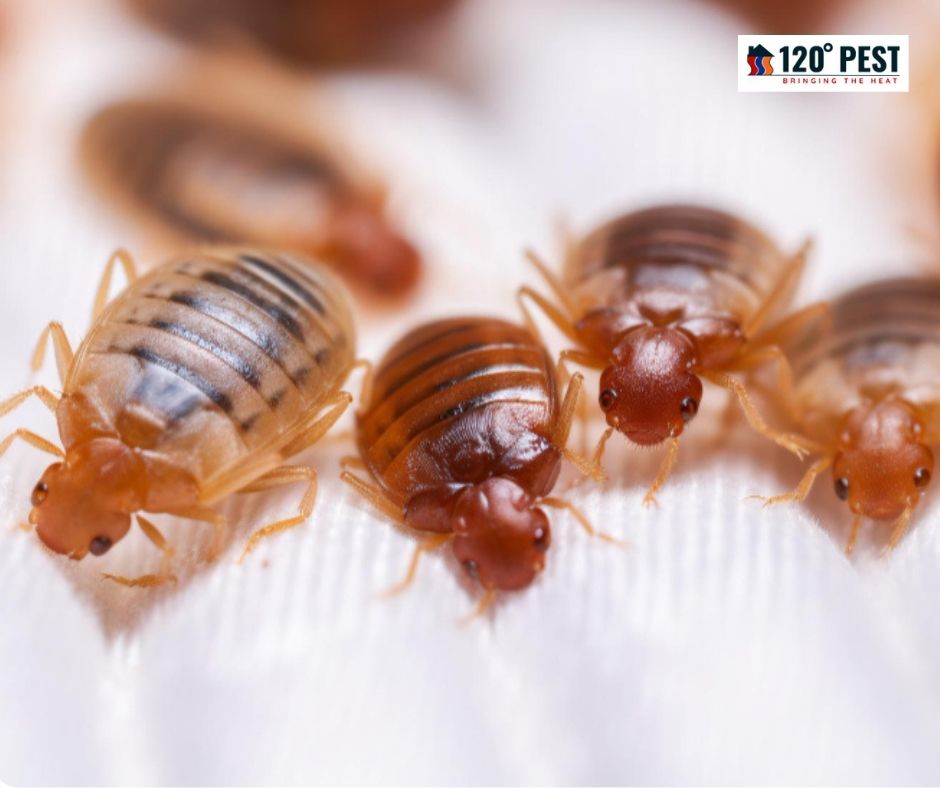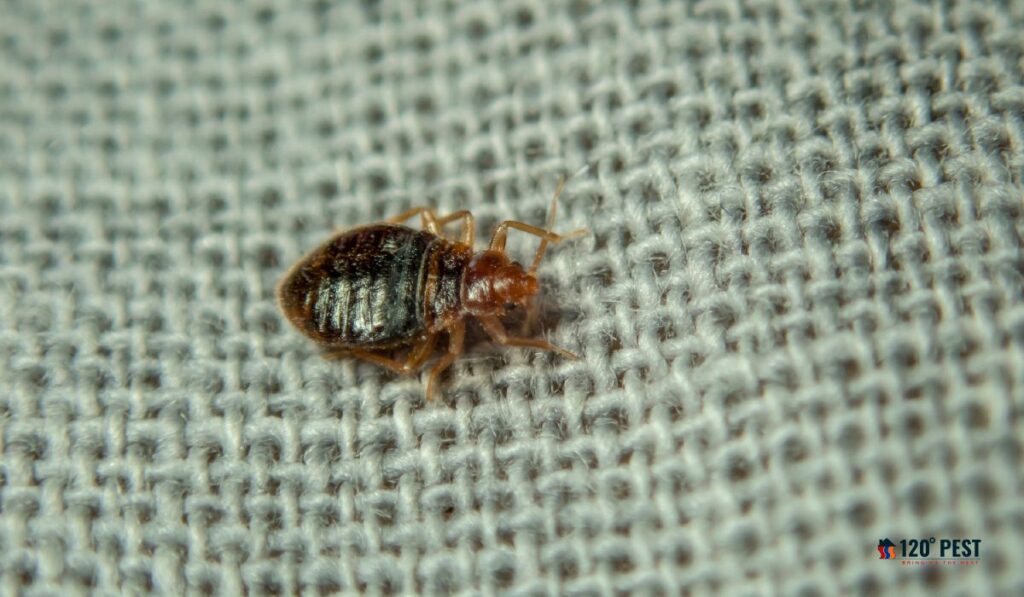Bed bugs are a persistent nuisance that can infest commercial spaces, causing discomfort and potential damage to reputation. Traditional methods of eliminating these pests have proven ineffective, leading businesses to seek alternative solutions. Among these solutions, commercial fumigation and heat treatment have emerged as effective methods to eradicate bed bug infestations. In this article, we’ll delve into the details of these two approaches, exploring their processes, benefits, and considerations for businesses facing bed bug problems.
Understanding Bed Bugs:
Before delving into the eradication methods, it’s crucial to understand the nature of bed bugs. These small, reddish-brown insects feed on the blood of humans and animals, typically at night, while the host is asleep. Bed bugs can hide in cracks and crevices, making them challenging to detect and eliminate. Their resilience to many traditional pesticides has made them a formidable foe in the pest control industry.
Commercial Fumigation:
Fumigation stands as one of the most potent methods for tackling severe bed bug infestations in commercial spaces. It operates on the principle of introducing toxic gases or fumes into a confined area, ensuring a comprehensive extermination of pests. This process is typically executed by licensed professionals who possess the expertise and specialized equipment required for effective fumigation.
The initial step in commercial fumigation involves meticulous sealing of the infested area. This step is crucial as it prevents the fumigant from escaping into surrounding spaces and ensures its concentrated effect within the target zone. Once properly sealed, the fumigant is introduced into the space, systematically permeating through all cracks, crevices, and hiding spots where bed bugs typically reside. This thorough penetration is essential for reaching bed bugs in their most elusive hiding places, ensuring that no pests escape the treatment.
Benefits of Commercial Fumigation:
Benefits of Commercial Fumigation:
- Comprehensive eradication: One of the primary benefits of commercial fumigation is its ability to achieve comprehensive eradication of bed bugs. Fumigation reaches into areas that may be inaccessible to other treatment methods, such as cracks, crevices, and voids within walls or furniture. This thorough penetration ensures that bed bugs hiding in these concealed spaces are effectively exterminated, leaving no refuge for reinfestation. By targeting the entire infestation, commercial fumigation offers businesses the assurance of a thorough and lasting solution to their bed bug problem.
- Fast-acting: Commercial fumigation is known for its rapid efficacy in eliminating bed bug infestations. Unlike some alternative methods that may require multiple applications or extended treatment periods, fumigation acts quickly to eradicate pests. Once the fumigant is introduced into the infested area and sealed off, its toxic properties take effect swiftly, resulting in the rapid demise of bed bugs and their eggs. This fast-acting nature of fumigation allows businesses to address bed bug infestations promptly, minimizing downtime and disruption to operations. With commercial fumigation, businesses can regain control of their premises and resume normal activities sooner, without prolonged inconvenience or loss of revenue.
- Minimal disruption: Despite its potency, commercial fumigation is designed to minimize disruption to surrounding spaces within the commercial establishment. While the process requires sealing off the infested area to contain the fumigant, careful planning and execution can help mitigate the impact on adjacent areas. Professional fumigators work diligently to ensure that only the target zone is affected, allowing other parts of the premises to remain accessible and functional. This minimal disruption is particularly beneficial for businesses operating in sectors where continuous operation is essential, such as hospitality, healthcare, or retail. By minimizing disruption, commercial fumigation enables businesses to address bed bug infestations effectively while maintaining a smooth and uninterrupted workflow.
Considerations for Commercial Fumigation:
Preparation: Businesses may need to temporarily vacate the premises during fumigation, requiring careful planning to minimize disruptions.
- Safety precautions: Fumigants are toxic chemicals that require careful handling to ensure the safety of occupants and workers.
- Follow-up inspections: Post-fumigation inspections are essential to ensure the effectiveness of the treatment and detect any lingering bed bug activity.
Fumigation for non-commodity uses in Georgia is not a common practice.
Heat Treatment:
Heat treatment, commonly referred to as thermal remediation, is a proven method for eliminating bed bug infestations in commercial settings. This approach harnesses the power of high temperatures to eradicate bed bugs and their eggs, offering a safe and effective alternative to chemical-based treatments.
The process of heat treatment involves raising the temperature of the infested area to levels that are lethal to bed bugs. Typically, specialized equipment is utilized to achieve and maintain temperatures between 120°F and 140°F throughout the treatment space. This temperature range is carefully calibrated to ensure optimal efficacy in killing bed bugs while minimizing the risk of damage to property or materials within the premises.
During the heat treatment process, the elevated temperatures penetrate into cracks, crevices, and other hiding spots where bed bugs may reside. Unlike chemical pesticides, which rely on direct contact with the pests, heat treatment reaches bed bugs in their most inaccessible hiding places, ensuring thorough extermination. Moreover, the heat is equally effective at eliminating bed bug eggs, preventing the possibility of future infestations.
Benefits of Heat Treatment:
- Non-toxic: Heat treatment does not involve the use of chemicals, making it a safer option for businesses concerned about chemical exposure.
- Environmentally friendly: Heat treatment does not leave behind residues or require the disposal of chemical waste, making it environmentally friendly.
- Effective against pesticide-resistant bed bugs: Heat treatment can effectively eliminate bed bugs that have developed resistance to traditional pesticides.
Considerations for Heat Treatment:
- Equipment requirements: Heat treatment requires specialized equipment and trained technicians to ensure proper execution.
- Heat-sensitive items: Businesses must remove heat-sensitive items from the treatment area or take precautions to protect them from heat damage.
- Monitoring temperature levels: Maintaining consistent temperatures throughout the treatment process is essential to ensure the effectiveness of heat treatment.
Choosing the Right Solution:
When faced with a bed bug infestation, businesses must carefully consider their options for eradication. Both commercial fumigation and heat treatment offer effective solutions, each with its own set of benefits and considerations. Factors such as the extent of the infestation, the presence of sensitive materials, and occupant safety concerns should inform the decision-making process.
Conclusion:
In conclusion, whether opting for commercial fumigation or heat treatment, businesses must prioritize the safety and well-being of occupants and workers while effectively addressing bed bug infestations. For professional assistance and consultation regarding bed bug eradication, businesses can reach out to licensed pest control professionals. Contact 120 Pest Control today to schedule a consultation and take proactive steps towards achieving a pest-free environment.
FAQs
What are bed bugs, and why are they a concern for commercial spaces?
Bed bugs are small, reddish-brown insects that feed on the blood of humans and animals, typically at night. They can hide in cracks and crevices, making them challenging to detect and eliminate. In commercial spaces, bed bugs pose a significant concern as they can cause discomfort to occupants and potential damage to a business’s reputation.
What is commercial fumigation, and how does it work?
Commercial fumigation involves the introduction of toxic gases or fumes into a confined area to exterminate bed bugs comprehensively. Licensed professionals seal off the infested area and then introduce the fumigant, ensuring thorough penetration into cracks, crevices, and hiding spots where bed bugs reside.
What are the benefits of commercial fumigation for businesses?
Commercial fumigation offers comprehensive eradication, fast-acting results, and minimal disruption to operations. It targets inaccessible areas, acts quickly to eliminate pests, and allows businesses to resume normal activities sooner.
What considerations should businesses keep in mind when opting for commercial fumigation?
Businesses should prepare for temporary vacating of premises, adhere to safety precautions for handling toxic chemicals, and schedule follow-up inspections post-fumigation to ensure effectiveness.
What is heat treatment, and how does it differ from commercial fumigation?
Heat treatment, or thermal remediation, utilizes high temperatures to eradicate bed bugs and their eggs without the use of chemicals. It involves raising the temperature of the infested area to lethal levels for bed bugs, reaching into cracks and crevices where pests hide.
What are the advantages of heat treatment for businesses?
Heat treatment is non-toxic, environmentally friendly, and effective against pesticide-resistant bed bugs. It eliminates the need for chemical exposure, reduces environmental impact, and addresses pests that may have developed resistance to traditional pesticides.
What should businesses consider before opting for heat treatment?
Businesses should ensure they have the necessary equipment and trained technicians for proper execution, remove heat-sensitive items from the treatment area, and monitor temperature levels consistently throughout the process.
How can businesses choose between commercial fumigation and heat treatment?
Businesses should consider factors such as the extent of the infestation, presence of sensitive materials, and safety concerns for occupants when deciding between commercial fumigation and heat treatment. Consulting with pest control professionals can help in making an informed decision tailored to specific needs.
Are there any long-term effects of commercial fumigation or heat treatment on the treated area?
Both commercial fumigation and heat treatment are designed to leave minimal long-term effects on the treated area. However, businesses may want to inquire about any residual odors or residues that could linger after treatment, particularly if the premises serve sensitive populations or handle food products.
Can commercial fumigation or heat treatment guarantee complete eradication of bed bugs?
While both methods are highly effective at eliminating bed bugs, no treatment can offer a 100% guarantee. Factors such as the extent of the infestation, presence of hidden eggs, or re-introduction of bed bugs from external sources may influence the outcome. Businesses should discuss realistic expectations and potential follow-up treatments with their pest control provider.





